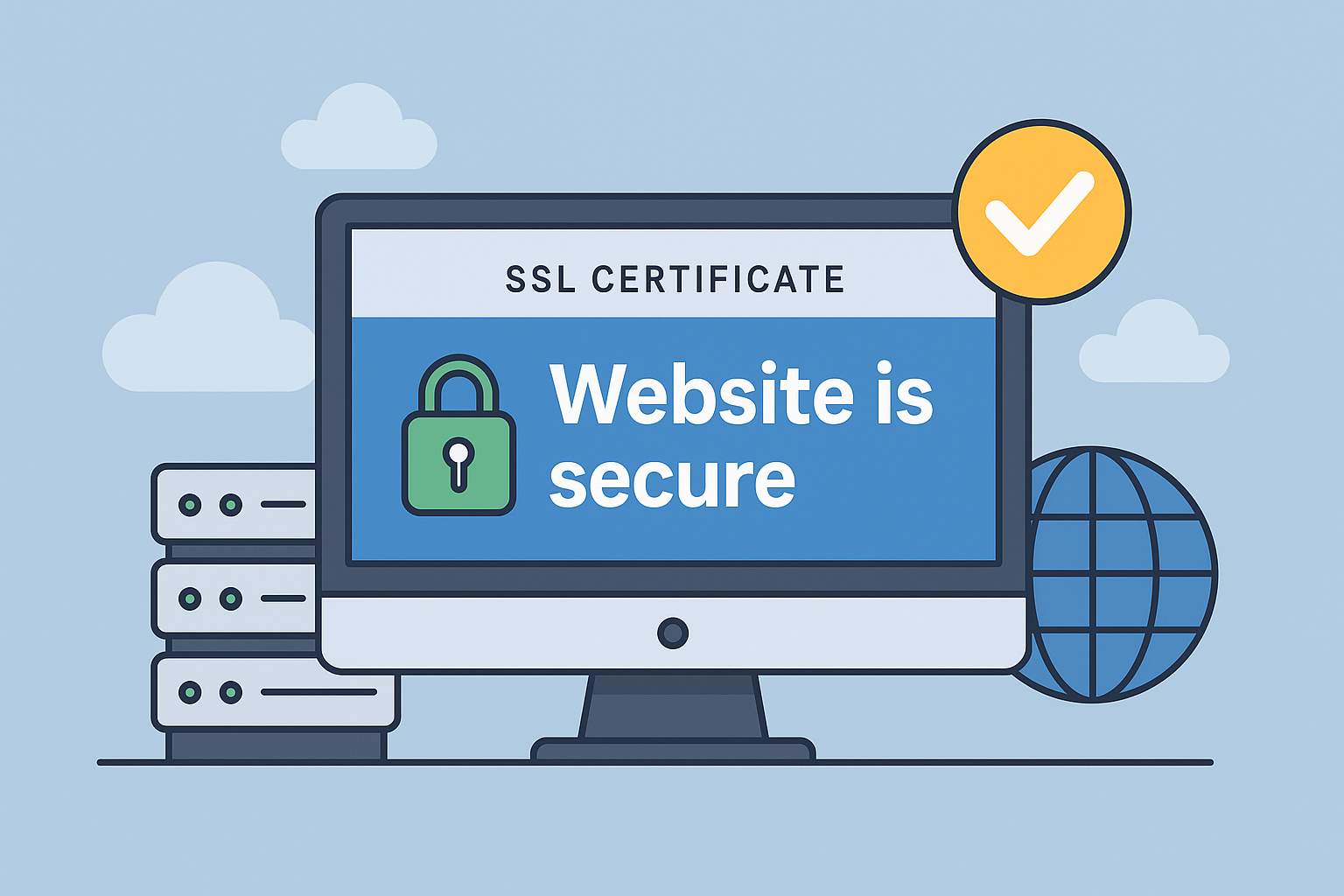
25
The Importance of SSL Certificates: How to Verify Website Security
Learn why SSL certificates are essential, how to check them, and how to fix common errors. Use the free Recipeace SSL Checker to verify website security instantly.
Introduction: Why SSL Certificates Matter in 2025
When you visit a website, the first thing you probably notice is the padlock icon in your browser bar. That little padlock, powered by an SSL certificate, tells you that the website is secure, encrypted, and trustworthy.
But what happens if the SSL certificate is missing, expired, or misconfigured? Visitors may see warnings, Google may lower your SEO ranking, and sensitive data can be exposed.
In this guide, we’ll explore everything you need to know about SSL certificates, why they matter, and how to check them with free tools like the Recipeace SSL Checker.
What Is an SSL Certificate?
- SSL (Secure Sockets Layer): A security protocol that encrypts data between your browser and a website.
- TLS (Transport Layer Security): The modern successor to SSL, but people still use the term “SSL” for convenience.
- Certificates are issued by Certificate Authorities (CAs) like Let’s Encrypt, DigiCert, and GlobalSign.
When installed properly, an SSL certificate ensures that:
- Data is encrypted and secure.
- The website’s identity is verified.
- Users see “https://” instead of “http://”.
Types of SSL Certificates
Not all SSL certificates are the same:
- DV (Domain Validated): Verifies domain ownership. Basic security, fastest to get.
- OV (Organization Validated): Verifies the business/organization behind the site. More trustworthy.
- EV (Extended Validation): Highest level of verification. Shows the organization’s legal name in the certificate details.
Why SSL Is Essential for Every Website
- Data Protection: Prevents hackers from intercepting sensitive data.
- SEO Boost: Google uses HTTPS as a ranking factor.
- User Trust: Visitors are more likely to stay on a secure site.
- Browser Warnings: Chrome, Firefox, and Safari now display “Not Secure” for sites without SSL.
- E-Commerce Requirement: Payment processors like Stripe and PayPal demand SSL.
How to Check SSL Certificates
1. Use an Online SSL Checker
Try the free Recipeace SSL Checker
.
It lets you:
- Confirm if SSL is installed.
- Check expiry dates.
- Verify if the certificate chain is valid.
- Identify weak ciphers or misconfigurations.
2. Use Your Browser
- Click the padlock icon.
- View certificate details (issuer, validity, encryption level).
3. Use Command Line Tools
- Linux/Mac:
openssl s_client -connect example.com:443
- Windows: Use PowerShell’s Test-NetConnection with SSL parameters.
Common SSL Errors and Fixes
- ERR_CERT_DATE_INVALID → Certificate expired. Renew SSL.
- ERR_CERT_COMMON_NAME_INVALID → Domain mismatch. Re-issue SSL for correct domain.
- ERR_SSL_PROTOCOL_ERROR → Misconfigured server or outdated TLS version.
- Mixed Content Warning → Secure page loads insecure images/scripts. Update resources to HTTPS.
Free vs Paid SSL Certificates
- Free SSL (Let’s Encrypt): Ideal for blogs, personal sites, small businesses. Auto-renews every 90 days.
- Paid SSL (DigiCert, Sectigo): Offers warranties, higher validation, and business-level trust.
Which should you choose?
- Blogs/portfolios → Free SSL is enough.
- E-commerce or finance → Paid SSL with OV/EV recommended.
How SSL Certificates Impact SEO
- Google Chrome flags HTTP-only sites as insecure.
- HTTPS is a ranking factor in Google’s algorithm.
- Websites without SSL may see higher bounce rates due to browser warnings.
How to Fix and Maintain SSL Certificates
- Enable auto-renewal (Let’s Encrypt, cPanel, Cloudflare).
- Regularly check expiry dates with tools like Recipeace SSL Checker.
- Always redirect HTTP → HTTPS with 301 redirects.
- Enable HSTS (HTTP Strict Transport Security) to force HTTPS.
- Remove mixed content errors from your site.
Future of SSL/TLS
- TLS 1.3 is now the modern standard — faster and more secure.
- QUIC + HTTP/3 will further improve encryption and speed.
- Expect SSL certificates to be even more automated and universal.
Conclusion: SSL Is Non-Negotiable
In 2025, having an SSL certificate is no longer optional — it’s mandatory. From securing user data to boosting SEO and building trust, SSL is the foundation of a safe and successful website.
So whether you’re a blogger, developer, or business owner, make sure to:
Install SSL
Verify SSL regularly with the Recipeace SSL Checker
Keep your certificates updated
A secure website is a trustworthy website.
Contact
Missing something?
Feel free to request missing tools or give some feedback using our contact form.
Contact Us